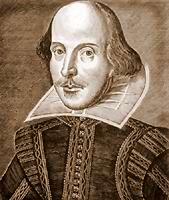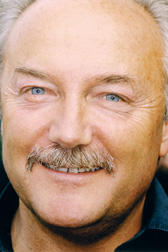The first point Drury makes describing the governing philosophy of the neoconservatives is their love of secrecy within the ruling institutions, fueled by Strauss's belief in using information to control the "vulgar masses":
Strauss was very pre-occupied with secrecy because he was convinced that the truth is too harsh for any society to bear; and that the truth-bearers are likely to be persecuted by society - specially a liberal society - because liberal democracy is about as far as one can get from the truth as Strauss understood it.
The Bush Administration has a well-deserved reputation for its secrecy; a fact recognized by members of both political parties. This control of information and political message is especially relevant given the wide availability of information these days. The Bush Administration has been long on political rhetoric and short on the dissemination of actual data concerning the operations of the government. One only has to look at the stonewalling the White House engaged in when confronted with demands for certain documents, concerning the nominations of Chief Justice John Roberts and U.N. Diplomat John Bolton, and the court-ordered release of the Abu Ghraib prison pictures. Clearly this is an administration which understands that blocking the release of vital information is essential to maintaining and even forwarding its political positions.
The second aspect of neoconservatism that informs Bush Administration policy is the Straussian belief in the rulership of the elite over the subordinate masses, expressed by Strauss as the contrast of ancient philosophic beliefs in a natural order over more modern philosophies of liberal humanism:
The wise ancients thought that the unwashed masses were not fit for either truth or liberty; and giving them these sublime treasures was like throwing pearls before swine. Accordingly, they believed that society needs an elite of philosophers or intellectuals to manufacture "noble lies" for the consumption of the masses. Not surprisingly, the ancients had no use for democracy.
[snip]
In contrast to the ancients, the moderns were the foolish lovers of truth and liberty; they believed in the natural rights to life, liberty, and the pursuit of happiness. They believed that human beings were born free and could be legitimately ruled only by their own consent.
While on its face this idea seem counter to Bush's rhetoric about "spreading democracy"; however, it begins to make more sense when the elite become not philosophers and intellectuals, but leaders of industry and commercial endeavors. The Bush Administration's neoconservative belief in this area is well illustrated by both its social and tax policies. Industry, and the capitalists that control it, are given preferential tax treatment far beyond that which the working class enjoys. The Administration also makes no bones about pushing a social agenda that marginalizes the common people, such as the proposed ban on homosexual marriage or the criminalization of abortion. These social issues are used as a confining framework to keep the "underclass's" attention fixed away from the substantive uses of power by the government that is not in the peoples' best interests.
Given the role of the "elite" to rule over the masses, what then framework would be used to build and maintain that social order:
The goal of the wise is to ennoble the vulgar. But what could possibly ennoble the vulgar? Only weeping, worshipping, and sacrificing could ennoble the masses. Religion and war - perpetual war - would lift the masses from the animality of bourgeois consumption and the pre-occupation with "creature comforts." Instead of personal happiness, they would live their lives in perpetual sacrifice to God and the nation.
This, more than any other tenet of the neoconservative philosophy, informs the politics of the Bush Administration. Both President Bush's open advocacy for a greater religiosity in the nation, informed, naturally, by the conservative evangelical Christianity in which Bush claims to believe, as well as Bush's preference for military solutions to foreign policy issues, clearly illustrate Strauss's "goal of the wise".
Finally, Drury hits on just what the cornerstone of neoconservatism policy is:
[U]se democracy to defeat liberty. Turn the people against their own liberty. Convince them that liberty is licentiousness - that liberty undermines piety, leads to crime, drugs, rampant homosexuality, children out of wedlock, and family breakdown. And worse of all, liberalism is soft on communism or terrorism - whatever happens to be the enemy of the moment. And if you can convince the people that liberty undermines their security, then, you will not have to take away their liberty; they will gladly renounce it.
The above is the Bush Administration's entire platform, stripped of all its misleading rhetoric. It's the Patriot Act, The Marriage Amendment and the War on Terror all broken down to their driving philosophy. This is the brand of democracy that the Bush Administration wishes to implement here and to impose on other nations at the point of the world's most powerful gun. Democracy stripped of liberty, encouched in repressive social ideals and excessive religiosity, funded by government-supported capitalism and sustained by the fear of an ever-present and shadowy "enemy".
Fortunately, only half of the country has bought into the Bush Administration's neoconservative policies, and those numbers are shrinking everyday. The nobility of the human spirit can never be fully quenched by tyranny, even tyranny disguised with the language of liberal democracy.




















